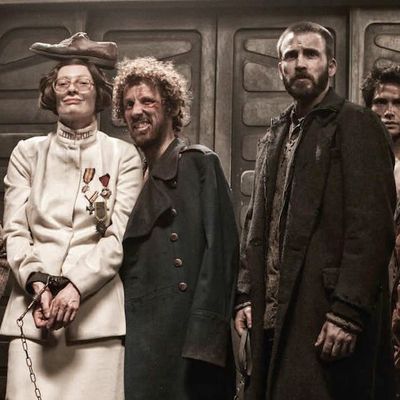
When we’re hit with an unusually warm day in the midst of what should be a cold winter, it’s easy to forget that the culprit behind our temporary bliss is the eventual apocalypse. Thank goodness that some of us do remember, and still work toward a better future despite the abyss of despair that remembering can trigger. Head programmer Aliza Ma at New York City’s Metrograph cinema recognized that impulse, and channeled it through Climate Crisis Parables, a film series focused on how art has depicted our climate crisis leading up to this critical moment.
“A lot of the sentiment around the way we live our daily lifestyle is that there is this sort of pressure cooker that has been in desperate need of a release valve,” says Ma. “People keep drawing these cultural parallels between where we are now and the late ’60s and early ’70s. Back then, yes, there was a lot of ecoactivism. But you didn’t get the sense that time was running out like we do now.”
Ma and her team have put together a collection of films from across genres and eras, all hoping to ignite necessary conversations, now through Earth Day. And while there were plenty of documentaries that could have made the cut, Ma made an active choice to only include scripted films.
“The idea is that there’s a cyclical quality to history,” says Ma. “A lot of the films that we’re showing, they’re futuristic and sci-fi, but the years that they’re set in, we’re coming up to that [again]. Red Desert shows a dystopian portrait of a nuclear hellscape, for instance. And the things that were prognosticated in the fictional films, we find very eerie parallels in where we are today, and they serve as a warning of where we’re headed. Where we’re headed is completely unprecedented in our global history.”
The series includes author Christine Smallwood introducing Melancholia, filmmaker and activist Naomi Klein introducing Princess Mononoke, and novelist Kevin Baker introducing Blade Runner: The Final Cut, among others. A recent viewing of Snowpiercer was introduced by author Ashley Dawson, who set the scene for the movie without spoiling it for any first-time watchers.
“It’s in all of our interests to have reparations happen,” Dawson said. “We need to make sure that pathways toward development around the world are as green as possible and don’t follow the kind of hyper-consumptionist pathway that the United States has developed and is currently exporting all around the world, often at the point of a gun.”
For the remainder of the series, Ma hopes to inspire audiences to take action. While she sees art, and film in particular, as an accessible point of entry into the fight against climate change, she hopes that it is only the beginning.
“I’m hoping that people walk away galvanized, wanting to take action,” said Ma. “Maybe they can think about it in terms of this voting year. But really the fictional scenarios should serve as entrance points into discussion of what we’re dealing with every day. There isn’t any template to think through what’s going to happen, because people have no idea. What we can think about are the actions we have to take right now.”
The Climate Crisis Parables runs through April 22.




